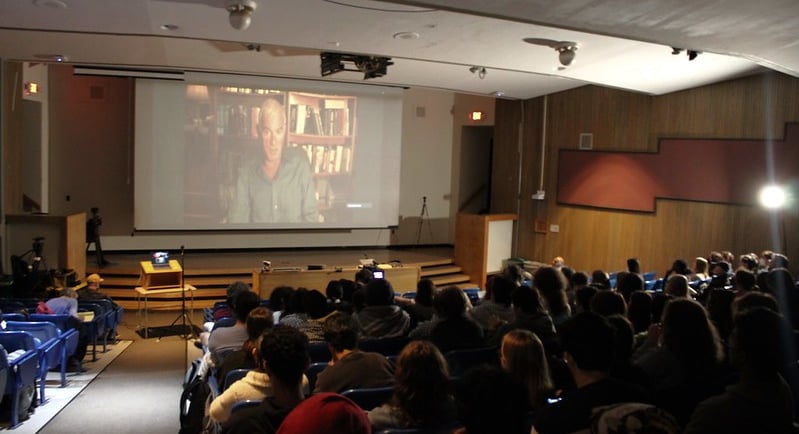Israel's Strike on Syria Under the Pretext of Protecting the Druze: An Analysis from the Perspective of Norman Finkelstein
The premise of an Israeli military strike on Syrian territory under the banner of "protecting the Druze minority" would be viewed through the lens of Professor Norman Finkelstein not as a humanitarian act, but as a classic example of using a pretext to advance geopolitical objectives and flagrantly violate international law. Finkelstein, who consistently emphasizes the supremacy of law over power, would analyze such an action by deconstructing it based on the following key principles:
7/16/20253 min read


The premise of an Israeli military strike on Syrian territory under the banner of "protecting the Druze minority" would be viewed through the lens of Professor Norman Finkelstein not as a humanitarian act, but as a classic example of using a pretext to advance geopolitical objectives and flagrantly violate international law. Finkelstein, who consistently emphasizes the supremacy of law over power, would analyze such an action by deconstructing it based on the following key principles:
1. Deconstructing Humanitarian Pretexts and the "Responsibility to Protect"
Finkelstein’s first and most immediate line of inquiry would be to question the sincerity of such a claim. He posits that powerful states and their allies (in this case, Israel with US backing) often weaponize noble concepts like human rights or minority protection to provide a veneer of legitimacy for their military interventions.
Selective Hypocrisy: Finkelstein would immediately pose the question: Why would Israel, which for decades has violated the fundamental rights of Palestinians in the occupied territories and been criticized by credible human rights organizations (whose work Finkelstein often cites), suddenly become concerned about the welfare of a minority in a neighboring country? He would interpret this "selective compassion" as a sign of an ulterior motive, not a genuine commitment to human rights.
The Complexity of the Druze Community: As a meticulous scholar, Finkelstein would point to the fact that the Druze community in the Middle East is not monolithic. The Druze in Israel (many of whom serve in the IDF), in Lebanon, and in Syria (who have largely remained either neutral or loyal to the Syrian state) have different interests and allegiances. To claim to "protect" them without a formal request from their leadership in Syria is an uninvited and divisive intervention that could endanger the very community it purports to help.
2. The Primacy of International Law and National Sovereignty
For Finkelstein, the act itself is paramount, regardless of the stated motive. The foundational principles of international relations are respect for national sovereignty and territorial integrity, as enshrined in the UN Charter.
A Blatant Violation of the UN Charter: A military attack by one country on another, without the authorization of the UN Security Council and in the absence of a direct and imminent threat (self-defense), constitutes an act of aggression. Finkelstein would argue that no country has the "right" to unilaterally intervene in another, regardless of the pretext.
The Danger of Unleashing Chaos: He would warn that accepting such a rationale (intervention to protect minorities) would revert the world to the "law of the jungle." If Israel can attack Syria to protect the Druze, can Turkey then attack northern Iraq to protect the Turkmen? Can any country intervene in its neighbors to protect co-religionists or ethnic kin? This logic dismantles the very basis of a global order founded on state sovereignty.
3. Searching for the Real Strategic Objectives
If "protecting the Druze" is merely a pretext, what would be Israel's true objectives? A Finkelsteinian analysis would focus on the following:
Primary Goal: Countering Iran and Hezbollah: The consistent and overarching goal of Israeli strikes in Syria is to prevent the consolidation of Iran's military influence and disrupt Hezbollah's supply lines. Using the "protection of the Druze" as cover could be a public relations tactic to win international sympathy and frame the attack as a humanitarian mission rather than a direct assault on the "Axis of Resistance."
A 'Divide and Conquer' Strategy: Such an act could be an attempt to drive a wedge between the Druze community and the Syrian central government. By positioning itself as a "protector," Israel might hope to win the loyalty of a segment of this community, creating an informal buffer zone or a new proxy ally in southern Syria.
Diverting Public Attention: As with other military actions, such a strike could serve to divert attention from Israel's internal crises (such as political infighting or economic pressures) or from international criticism regarding its other policies (for instance, in Gaza).
4. The Role of the United States as "The Enabler"
No Finkelstein analysis is complete without addressing the role of the United States. He maintains that Israel's audacity in repeatedly flouting international law stems directly from the "green light" of unconditional military, financial, and diplomatic support from the US. American silence or a muted response following such an attack would be interpreted as tacit approval, granting Israel a shield of impunity from any meaningful condemnation at the UN Security Council.
Conclusion from a Finkelsteinian Perspective
From Professor Finkelstein's viewpoint, an Israeli attack on Syria under the pretext of "protecting the Druze" would be a hypocritical spectacle that violates three principles he holds sacred: political honesty, respect for international law, and the prioritization of legal solutions over unilateral military action.
He would see such a move not as a sign of strength, but as grim evidence that, in the absence of a functional international accountability system, military might easily supplants the rule of law, and humanitarian pretexts become tools to advance imperial and regional ambitions.